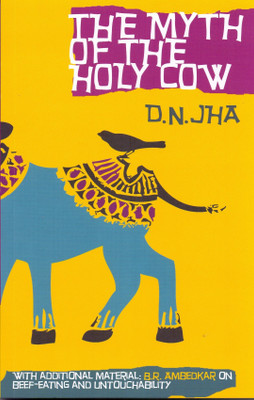Myth of the Holy Cow(English, Paperback, Jha D.n.)
Quick Overview
Product Price Comparison
The Myth Of The Holy Cow presents D. N. JhaŌĆÖs research on the prevalence of beef-eating practices in ancient India, shattering the perception of sanctity that has been associated with the cow in India. Summary Of The Book The cow has long been considered a symbol of the religion of Hinduism, and therefore of holiness, in India. Killing this animal, let alone eating it, would be sacrilegious for Hindus. The general perception among Hindus is that the slaughtering of cows for food began with the Muslim conquests in India. But according to the authorŌĆÖs research, killing cows for meat was a prevalent practice in ancient India. In The Myth Of The Holy Cow, the author reveals that in ancient times, Hindus and Buddhists ate beef. According to him, the cow earned its status as the holy animal of Hinduism only in the eighteenth and nineteenth centuries. The book states that hindus regularly used cows both as part of dietary traditions and as offerings to God. This edition of the book was published in 2009 by Navayana. With its sensitive content and the religious sentiment involved, it garnered much controversy both before and after its publication. About D. N. Jha D. N. Jha is an Indian historian. He specializes in the history of ancient and medieval India. His written works include Early India: A Concise History, Ancient India: In Historical Outline, Society And Ideology In India, Economy And Society In Early India: Issues And Paradigms, and Holy Cow: Beef in Indian Dietary Traditions. D. N. Jha or Dwijendra Narayan Jha graduated with a BA (Hons) in History from Presidency College of the University of Calcutta. He then earned an MA in History from Patna University. He was a member of the Indian Council of Historical Research. He also taught History at the Delhi University. Jha has been very outspoken on various social and political issues such as communalism, the Hindu nationalist ideology, and beef-eating in India.


